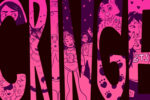It’s natural for creativity to dwindle at times, especially during times of high stress and emotional turbulence. Every artist, musician or writer reaches creative burnout at some point or another. Whether it’s caused by the external pressure to constantly make new content or the internal pressure to make perfect art, burnout means you’ve run out of ideas, feel unmotivated to create and struggle to find inspiration like you used to. Creative burnout, while dreadful and seemingly eternal during the moment, is not permanent; here are seven tips for being original when you’ve reached creative burnout.
1. Take a Break
First and foremost, it can be extremely helpful to take a break when you hit a creative wall. If you’re sitting for ages staring at an empty Google doc or a blank canvas fully burnt out, you could very well sit there until the end of time — or at least I could. Walking away from your craft can help reset your creative brain. Take a break from the project you’re working on and do another activity, anything that distracts you from the work at hand — watch some TikToks, take a nap or hang out with some friends. Simply having conversations with other people may bring you new ideas. If you feel like you’re wasting your time by taking a break, maybe switch to a different project or clean up your workspace; complete a task that is just as productive.
2. Try Another Creative Medium
If you’re struggling to finish one creative task, for example, your photography project, try pausing that one and trying an unrelated creative outlet, like playing an instrument. While you may be void of original ideas in one area, you will still push your creativity in a different direction, allowing you to harness and redirect it toward the original project when you feel ready to return to it. Choose a creative outlet that has little to no pressure. If you’re struggling to write an essay and meet a deadline, choose to paint something for fun without any requirements or time demands. Don’t use the secondary activity as an excuse to procrastinate on the original one though; set a timer to limit the second project if you’re on a time crunch.
3. Create Your Own Deadlines
As previously mentioned, it’s important to set limits on your breaks, creative or otherwise, so that you do return to the original work and don’t just procrastinate. It’s also helpful to make reasonable deadlines for yourself when working on a daunting creative project. To combat the self-doubt and perfectionism that may be causing creative burnout, break down your task into smaller, more reasonable goals and make your own due dates. Then, you have less time to question whether or not your work is good enough. While it may be tough to feel motivated when looking at a project as a whole, breaking it down into more manageable portions is a start to regaining that drive that will carry you through the work. Making your own mini deadlines may be enough pressure to get you moving, but small enough to prevent you from feeling overwhelmed.
4. Make Something, Even If It Sucks
Sometimes, we underestimate our abilities and let perfectionism get in the way of even beginning a new creative endeavor. It’s important to create art simply to create. Making any art can reduce stress and provide emotional catharsis. If you’re failing to come up with original ideas for a particular project, try to make something else in the same genre of art. Perhaps you’re trying to write a harmony for a piece but just can’t seem to get the notes right. Everything is clashing. Make another melody and another harmony. Make a new one and make it suck because even if it does, you’ll learn something from the process and make progress. And even then, it may not suck nearly as bad as you think; you may just be too hard on yourself in the moment.
5. Consume Other People’s Art
To find inspiration for your own craft, consume others’ art. Whether it’s listening to an album from your favorite band, watching an A24 movie or checking out your friend’s bomb art Instagram page, return to the reasons that made you want to create something in the first place. Look at or listen to their art and learn from it; consider the mental process and physical processes that are behind its creation and you may find some elements that you’d like to emulate in your own work. When you find what sparks you from the work of others, you can combine those ingredients into your own refreshed ideas.
6. Reduce Stress
We often run into our creative barriers when we are overwhelmed due to other stressors. When you’re particularly anxious and overextended, you likely have a lot on your mind that may be inhibiting your creative process. To bounce back from burnout, try to reduce the excessive stress in your life. While not all stressors lie within your immediate control, learning to cope with and manage stress can work wonders for your creative block. Exercise, spending time with loved ones, improving at saying “no” as to not overload yourself and doing anything that relaxes you or makes you take a moment to slow down are great methods to relieve stress.
7. Give Yourself Time
If you’re creatively parched, that’s okay. Every creator goes through it and it doesn’t mean your motivation won’t be back. It takes time to figure out the root cause of creative burnout and it takes even more time to get back into your flow. Allow yourself that time because chances are, if you’ve reached burnout, you’ve been working hard for a while to get to that point. Don’t feel ashamed or stumped, remember that everybody needs a recharge period and a moment to reflect on the work you have accomplished prior to the roadblock. Writer Nathalie Sejean said it best, “A creative burnout is not a fatality, it’s an injury.” And all injuries heal with time.
















